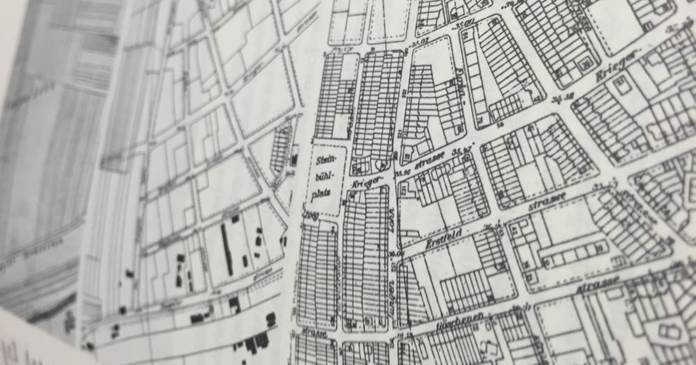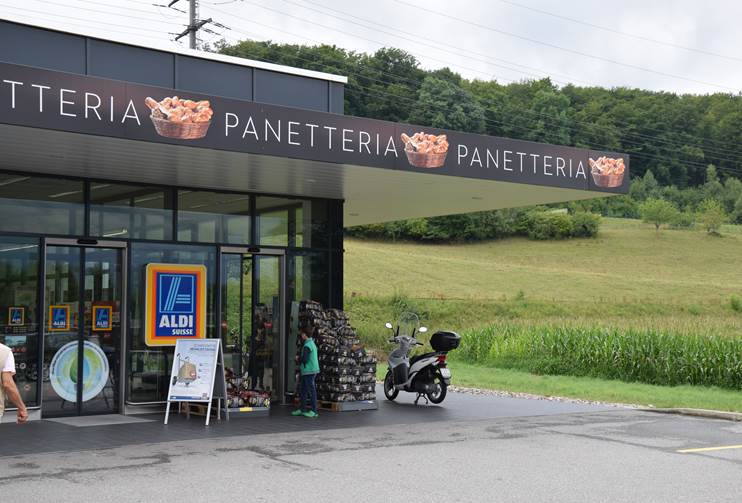Sample project
How effective are land policy instruments? A case study focusing on food discounters
Planning law contains a number of provisions relevant to property law, which are referred to as land policy instruments. These instruments are intended to ensure that land-use plans are implemented and thus that planning policy goals are actually achieved.
 Figure 1: Consideration of property in planning – plot structure shown on the Bernoulli plan in Basel (1946)
Figure 1: Consideration of property in planning – plot structure shown on the Bernoulli plan in Basel (1946)
However, instruments do not produce positive outcomes automatically. They must be activated by the respective actors, in particular, the local planning authorities, and used strategically wherever possible. This project examines whether and how planning authorities use land policy instruments. The basic hypothesis of the project is that the use of land policy instruments makes the planning system as a whole more effective. Accordingly, the actual spatial development should correspond more closely to planning policy objectives whenever land policy strategies are implemented.
In order to obtain results that are valid across Swiss municipalities and cantons, and to reduce the varying influence of private actors, a quasi-experimental study design was implemented. Food discounter subsidiaries were used as units of investigation. On the one hand, these are highly space-relevant due to their business and location model as well as drivers of shopping and mobility behaviors of customers. On the other hand, the goals of the discounter chains and the opportunities to achieve them locally are almost standardized. Discounter subsidiaries are therefore exceptionally well suited to carry out comparative studies in different spatial contexts.
 Figure 2: Non-sustainable use of land. A discounter subsidiary on the green field
Figure 2: Non-sustainable use of land. A discounter subsidiary on the green field
The empirical data collection was carried out in three steps, combining several methodological approaches:
- First, a geographical analysis of all 275 discounter subsidiaries (2018) in Switzerland was carried out using remote sensing methods. This served to determine on a large scale the functional-spatial features and in particular the urban planning characteristics in comparison with the planning objectives. Subsidiaries were classified according to a reduced number of ideal types (discounter classes).
- Second, we surveyed the use of land policy instruments in planning practice. The strategic importance and self-perception regarding the effectiveness of various land policy instruments were determined through a written survey of the municipalities where a discounter store is present. Again, a, ideal typical classification was developed (land policy types).
- Thirdly, we analyzed the effectiveness of land policy instruments on the basis of 9 selected case studies. The selection was carried out according to a matrix combining discounter classes and land policy types. The expectations regarding the condition, strategy and effectiveness were verified by means of systematic site visits, document analyzes and interviews with selected actors.
The results of the project make it possible to better explain the difference between planning law, planning policy objectives and the actual spatial development. This makes an essential contribution to identify empirical mechanisms explaining implementation deficits of spatial planning policy. The project also contributes to the development of land policy research and to the formulation of practice-oriented recommendations for dealing with discounter subsidiaries.